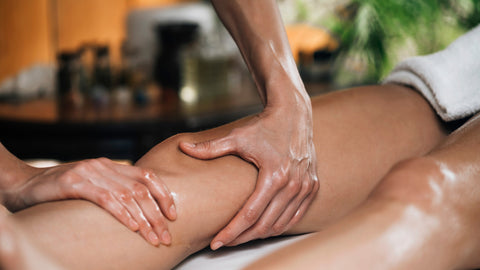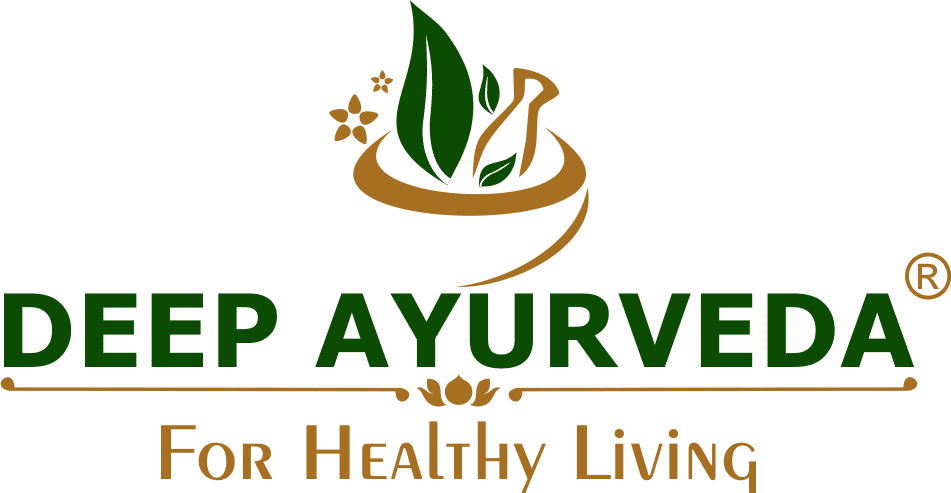
Ayurvedic Approaches to Manage Knee Pain in the Elderly
Pain in the joints, particularly pain in the knees, can be very problematic, especially for the elderly (those 65 and older). As people age, a process known as wear and tear causes degeneration that frequently leads to this.
Ayurveda, an ancient healing system, offers a way to treat knee pain by looking at each person’s unique health situation. It says that knee pain happens when there's too much Vata dosha, which is a type of energy in the body, that causes the knees to wear out, become inflamed, and lose lubrication. Ayurveda also suggests making changes in daily habits to help prevent knee pain.
So, keep on reading to learn how Ayurveda can help manage knee pain.
What Exactly is Joint Pain?
Joint pain refers to discomfort felt in any part of where two or more bones meet, such as your hip, where the thigh bone connects with the pelvis.
This type of pain is very common and can affect areas like your hands, feet, hips, knees, or spine. The pain could be chronic or intermittent, with symptoms such as stiffness, aching, or tenderness. People often describe the pain as burning, throbbing, or feeling like something is grinding. Joints may be stiff when you wake up, but they usually improve with movement, though excessive activity can worsen the pain.
Joint pain can have a far-reaching impact on your ability to perform daily tasks and your overall quality of life. Consequently, the goals of Knee pain treatment should be to reduce pain, regain function, and enable the patient to live life to the fullest.
What are the Possible Causes of Joint Pain?
The following are the most typical causes of joint pain:
- Osteoarthritis - the most common form of arthritis, is caused by the gradual deterioration of cartilage, which serves as a cushion between your bones. Your joints hurt and get stiff. Osteoarthritis develops slowly and usually occurs after age 45.
- Rheumatoid arthritis (RA) is a long-term condition that makes your joints swell and hurt. Your joints often sag; this usually affects your wrists and fingers.
- Gout is a painful condition in which acidic crystals from your body accumulate in your joints, causing intense pain and swelling. It usually affects the big toe.
- Bursitis can result from overuse. Usually, you can find it in your elbow, shoulder, knee, or hip.
- Tendinitis is the inflammation of the tendons, which are the flexible bands that join the muscles and bones. Usually, it appears in your shoulder, elbow, or heel. It often results from overuse.
Joint movement may also be painful due to viral infections, rashes, or fever. Joint pain can also be caused by injuries like sprains or broken bones.
Additional Factors that Can Lead to Joint Pain:
- Bad Posture: An improper alignment of the body.
- Metabolic Disorders: Metabolic disorders affect joint health.
- Neurological Disorders: Impacting the sense of pain.
- High-stress activities: Overexertion or Repetitive Strain.
- Inappropriate Footwear: Not enough support.
- Obesity: Putting strain on knee joints is obesity.
- Vascular Issues: Circulation affects the health of joints.
Which Factors Increase the Risk of Joint Pain?
People who typically experience joint pain include:
- Overused or frequently used muscle.
- Chronic medical conditions, such as arthritis.
- Prior orthopedic trauma.
- Stress, anxiety, or depression.
- Being obese (body mass index greater than 30) or overweight (body mass index greater than 25).
- Joint stiffness and pain can also be caused by age. Problems with your joints may arise after age 45 due to years of use and wear and tear.
Treating Knee Pain in Older Adults with Surgery
- In older adults, surgical options for treating osteoarthritis (OA) of the knee include Total Knee Replacement (TKR), which is often considered for severe cases with extensive joint damage.
- This procedure involves replacing the affected knee joint with an artificial one.
- Another method, arthroscopy, involves using a tiny camera and tools to look inside and possibly treat the joint.
- However, these surgeries are not suitable for everyone. Factors like poor health, increased risk from surgery, and insufficient relief from non-surgical treatments can make surgery a less viable option.
- Although being older doesn't automatically disqualify someone from having surgery, the overall health and life expectancy of the individual are important factors in the decision process.
Ayurvedic Approach to Prevent Knee Replacement Surgery

Below, we have discussed a few essential, comprehensive approaches that combine physical, emotional, and spiritual healing practices to prevent the need for knee replacement surgery and enhance the quality of life for elderly patients with knee issues.
-
Initial Assessment: Ayurvedic practitioners begin with a thorough examination of the patient's health constitution and specific ailments.
-
Vata Dosha Focus: The knee pain treatment plan often targets balancing the Vata dosha which, in Ayurvedic belief, its imbalance leads to joint issues.
- Medical Management: Supervision by healthcare professionals to monitor progress and adjust treatments as needed.
- Panchakarma Therapy: Detoxifying treatments that aim to cleanse the body and support healing of the knee joints.
- Diet and Lifestyle Changes: Personalized recommendations based on the individual’s constitution to support overall health and mitigate knee problems.
- Regular Monitoring: Continuous assessment to track improvement and make necessary adjustments to the knee pain treatment plan.
- Stress Reduction: Techniques like meditation and yoga are often recommended to decrease stress, which can exacerbate joint pain.
- Herbal Supplements: Use of Ayurvedic herbs to strengthen the joints and reduce inflammation.
Personalized Treatment for Elderly Patients at Deep Ayurveda
Factors such as weakened musculoskeletal strength and age-related degenerative changes in older adults must be carefully assessed. These factors are taken into account when creating the treatment plan. To ensure safety and efficacy in older adults, modifications are made to medication dosage, administration techniques, and therapeutic procedures.
Apart from direct treatment of knee pain, dietary changes, lifestyle adjustments, and mild exercise tailored to the patient's ability to preserve joint health and mobility are prioritized. Deep Ayurveda's clinical approach to knee pain in the elderly is based on a customized treatment plan that addresses joint pathology and rebalances aggravated doshas. Older people's knee pain can be effectively relieved and their quality of life enhanced by Ayurveda using a comprehensive approach that includes internal medication, external therapies, herbal formulations, and if needed, Panchakarma therapy.
At Deep Ayurveda, our Rheumatoid Ayurvedic Management program is designed to help with knee pain and improve the overall health of older adults. We recommend talking to our expert, Dr. Baldeep Kour, to get a treatment plan that’s just right for you. This program is all about giving you a detailed check-up, a custom treatment plan, and safe Ayurvedic treatments, especially if you have severe knee pain.
